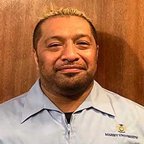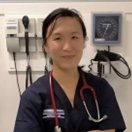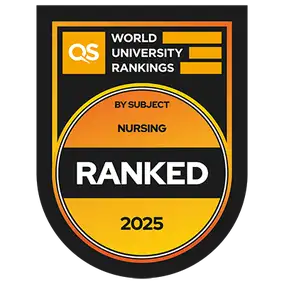- Type of qualification
- Master's degree
- Level of study
-
Postgraduate study
Once you’ve graduated with a bachelor’s degree – or have equal experience – you can study at the postgraduate level. Doctoral qualifications require additional entry requirements.
NZQF level 9Our courses follow the New Zealand Qualification Framework (NZQF) levels.
- Time to complete
-
2 years full-time (240 credits)
- Where you can study
-
Distance and online
-
International students
International students are not New Zealand citizens or residents.
- Not open to international students
- Not available for part-time study
- Delivered via on-campus block courses.
- Incorporates some distance learning.
- Selected entry qualification.
Study a Master of Clinical Practice (Nursing) – MClinPrac
The Master of Clinical Practice (Nursing) operates in collaboration with a range of clinical service providers in home, community and hospital settings. The qualification includes:
- theoretical health/nursing knowledge
- applied science
- clinical experiences.
The Master of Clinical Practice (Nursing) is similar to the Bachelor of Nursing. The main difference is that you will already have an undergraduate degree (as a minimum). You will also already know how to write and research at a tertiary level and can underpin scholarly arguments with evidence. The criteria for all registered nursing education qualifications is set by the Nursing Council of New Zealand. That is to ensure that all nursing students meet the requirements to become a registered nurse.
Students in the 2-year MCP are required to meet exactly the same criteria as students in the Bachelor of Nursing and you will learn the same nursing specific theory and complete the same number of clinical placement hours. However, as this qualification is at master’s level, 2 of your courses will be at a postgraduate (800) level.
Get real-world experience
You will complete a minimum of 1000 clinical learning hours in a range of clinical settings under the supervision and guidance of a registered nurse. In your last semester, you will have a continuous 9-week placement within a clinical setting. Clinical learning takes place in many different areas including surgical, emergency, medical, mental health and primary care services.
Learn from the best in your field
You’ll learn from academics and professional clinicians who are highly experienced registered nurses. Their expertise in practice and research drives the development of relevant, up-to-date course content, teaching, and assessment of your work.
You’ll be supported all the way
Along with contact with your lecturers, learning consultants in the Centre for Learner Success are available to support your study and academic writing skills. Each library has a subject librarian who supports you on campus or at a distance.
Further study
As a graduate of the Master of Clinical Practice (Nursing) you can go on to more postgraduate study to become a nurse specialist with prescribing rights or a nurse practitioner. You can also do a PhD in nursing.
A MClinPrac is a good fit if you:
- want to change careers
- want excitement and challenges in a job where every day is different
- are passionate about making a difference to the lives of people, communities and populations.
Entry requirements
Entry requirements
Admission to Massey
All students must meet university entrance requirements to be admitted to the University.
Specific requirements
This is a selected entry qualification. This means as well as applying you will need to provide additional material as part of your application.
To enter the Master of Clinical Practice (Nursing) you will:
- have been awarded or qualified for a bachelor’s degree or equivalent qualification with a grade average of B over the highest 2 levels of courses.
You will need to provide copies of all official academic transcripts for studies taken at all universities other than Massey University.
Inherent requirements
Inherent requirements are essential skills and attributes successful students will demonstrate to complete nursing courses while preserving the academic integrity of Massey University and New Zealand Nursing council’s learning, assessment, and accreditation processes. Please read through this list of inherent qualities.
Inherent requirements for nurses
Documentation
You will need to provide the following documents. These are to meet the requirements set down by the Nursing Council of New Zealand for registration as a nurse in New Zealand (in terms of your good character and fitness to be a nurse):
- a personal supporting statement of about 300 words explaining why you chose the Master of Clinical Practice (Nursing) and why you feel you would make a good nurse.
- list any personal characteristics you have that demonstrate your suitability
- include how you will manage intensified blended learning (distance learning, online self-directed learning, on-campus block courses, and labs and clinical placements)
- confirm that you are aware of the necessity of travelling and accommodating yourself on the Manawatu Massey campus 2-3 times a semester for a week at a time for block courses.
- a curriculum vitae of approximately 3 pages, which should include your academic and work history
- provide details of 2 character referees. Your referees must not be family or friends. An employer, manager or community representative would be ideal. We may request an additional referee.
- complete the vetting service request and consent form for a New Zealand Police check – a criminal record check under the Criminal Records (Clean Slate) Act 2004
- provide a current police certificate from any overseas countries you have lived in for 12 months or more in the last 10 years
- complete the Health and Disability Declaration
- an interview may be required.
Once you have been accepted into the Master of Clinical Practice (Nursing)
After successfully gaining a place in the Master of Clinical Practice (Nursing), you will need to complete the following tasks in order to be eligible for clinical placement (a compulsory part of the qualification):
- Meet the immunisation standards of practice for healthcare professionals in New Zealand. This includes, Hepatitis B, Varicella (Chicken pox), Measles, Pertussis (Whooping cough), Tuberculosis (TB) and COVID 19, and must be completed by 16 February. Further details will be sent to you on admission into the qualification.
- Hold a CPR First Aid Certificate (at a minimum). Must be completed by 16 February).
- Fill out a VCA 2014 Questionnaire- Vulnerable Children Act 2014 (VCA 2014) (provided at orientation).
- Sign a Professional Conduct and Confidentiality document (provided at orientation).
Application closing date
Applications close on 31 December for study commencing the following year.
English language requirements
You must demonstrate that you can communicate and comprehend English sufficiently to protect the health and safety of the public (section 16 (a) & (b) HPCA Act 2003). If English is not your first language you must provide your results in an Academic International English Language Testing System (IELTS) test or an approved alternative English Language test. You must have achieved at least 7.0 across all bands with no band less than 7.0 (or equivalent score in an approved alternative English Language test) within the preceding 2 years.
If English is not your first language and you experience communication difficulties in either theory, laboratory or clinical components of any nursing course within the qualification, you will be required to sit a further IELTS, or approved alternative English Language test, at your own expense. Failure to achieve a score of 7.0 (or equivalent) in one sitting, may result in being withdrawn from the qualification. Massey University does not accept any responsibility for student’s lack of achievement in a course due to lack of English proficiency.
About referees
Referees need to be able to provide informed responses on your personal suitability for the qualification. A referee should be someone who has known you for 1 year or more in the capacity of employer, educator, work colleague or person of community standing, for example a kaumātua, minister or similar. Your referee should not be a friend, flatmate, relative or someone who has not known you for at least a year. The information your referee supplies is confidential to those involved in the selection process.
Additional Costs
Participation in this qualification incurs further associated costs. This may exceed $2,000, plus the necessary travel. These costs include but are not limited to:
- Uniform
- Equipment
- Textbooks
- First Aid Certificate
- Immunity Screening
On successful completion of the qualification, in order to become a registered nurse, students will need to pay for:
- NCNZ State examination State final examinations
- NCNZ APC (Annual practicing certificate) Annual practising certificates
Travelling to and from Clinical Placements
You will need to travel to and from clinical placements throughout the qualification. These placements vary in shift times as you progress. It is important to consider how you will travel and what level of drivers licence you have. If you do not have a full drivers licence you will need to apply for an exemption to NZTA Waka Kotahi to travel outside of your limitations for each occurrence. Each application involves a fee.
Travelling to Lab Blocks
You will need to attend week-long laboratories on the Manawatū Campus in Palmerston North. You'll need to make your own arrangements to attend. Lab blocks are Monday- Friday twice a semester for the first 3 semesters of the qualification.
Time limits for Honours, Distinction and Merit
Where your qualification is completed within the stated time limit and to a high standard, you may be able to graduate with a class of Honours.
- Look for information under ‘Student Progression’ in the General Regulations for Postgraduate Degrees, Postgraduate Diplomas and Postgraduate Certificates.
- Contact us through the Get advice button on this page if you have any questions.
Prior learning, credit and exemptions
For information on prior learning, exemptions and transfer of credit or other questions:
- review the Recognition of Prior Learning regulations
- contact us through the Get advice button on this page.
English language skills
If you need help with your English language skills before you start university, see our English for Academic Purposes (EAP) courses.
Meeting requirements for industry membership
Becoming a registered nurse
In order to become a registered nurse, there are requirements from the Nursing Council of New Zealand that you will need to meet, in terms of your good character and fitness to become a registered nurse.
There are requirements both before you start your study and when you successfully complete this qualification.
See details in the ‘Specific requirements’ section above.
Maximum time limits for completion
There are maximum time limits to complete postgraduate qualifications. If you do not complete within the maximum time, you may be required to re-apply for the qualification if you wish to continue your studies.
Official regulations
To understand what you need to study and must complete to graduate read the official rules and regulations for this qualification.
You should read these together with all other relevant Statutes and Regulations of the University including the General Regulations for Postgraduate Degrees, Postgraduate Diplomas, and Postgraduate Certificates.
Returning students
For returning students, there may be changes to the majors and minors available and the courses you need to take. Go to the section called ‘Transitional Provisions’ in the Regulations to find out more.
In some cases the qualification or specialisation you enrolled in may no longer be taking new enrolments, so may not appear on these web pages. To find information on the regulations for these qualifications go to the Massey University Calendar.
Please contact us through the Get advice button on this page if you have any questions.
Structure of the Master of Clinical Practice (Nursing)
Structure of the Master of Clinical Practice (Nursing)
The Master of Clinical Practice (Nursing) is a parts-based qualification. That means you must complete the first part and meet some requirements, before moving to the second.
This distance qualification is delivered with ‘blended learning’ comprising online lectures, compulsory on-campus clinical lab blocks, clinical placements, independent study and examinations.
Studying full-time, you’ll take 120 credits per year or 60 credits per semester.
Part One
The courses in your first semester of study focus on hauora and wellbeing. It includes 160 clinical hours and introduces the professional requirements for nursing, nursing skills and knowledge, and the regulatory, legal and ethical dimensions of practice.
The courses in your second semester focus on long-term conditions and primary health care. This includes 240 clinical hours and study of the fundamentals of care (evidence-based nursing framework). It also includes a critical evaluation of the desired and unseen effects of technology in nursing. And a critical consideration of our individual and collective response to vulnerable and marginalised populations to lead reduction of health inequity and to promote wellbeing.
Part Two
This section focuses on complex and acute health challenges including caring for people and their whānau experiencing acute distress, illness or trauma across the age continuum. It includes evidence-based practice as a conscientious, problem-solving approach to nursing and 360 hours clinical placement.
The final semester of study focuses on consolidation of nursing knowledge and leadership. This includes 360 hours of continuous clinical practice and supports the student to understand the reality of the novice registered nurse. You will undertake an evidence-based exploration of the potential for change in practice in the clinical environment.
Timeframes of your study
The Master of Clinical Practice (Nursing) is offered as a 2-year full-time qualification. This course of study must be taken continuously. Extensions or suspensions must be sought in advance by applying to the Master of Clinical Practice (Nursing) Programme Leads at nursing@massey.ac.nz and will only granted in exceptional circumstances. If an extension on suspension has been granted the course of study should not exceed five (5) calendar years.
The Master of Clinical Practice (Nursing) is a selected entry qualification meaning there are extra criteria for entry. The teaching dates do not match the usual Massey University semester dates. You will be required to do extended semesters, and study break timing will vary from year to year to accommodate the clinical placements.
There are pre-programme introductory modules that open mid-January, and the qualification begins with a compulsory orientation on the Manawatū campus in the first week of February.
For applicants needing to meet the English language (IELTS) entry criteria the test results must be available to consider with the application no later than Friday of the first week in January of the year you are entering the qualification.
Courses and specialisations
Courses and specialisations
Key terms
- Courses
- Each qualification has its own specific set of courses. Some universities call these papers. You enrol in courses after you get accepted into Massey.
- Course code
- Each course is numbered using 6 digits. The fourth number shows the level of the course. For example, in course 219206, the fourth number is a 2, so it is a 200-level course (usually studied in the second year of full-time study).
- Credits
- Each course is worth a number of credits. You combine courses (credits) to meet the total number of credits needed for your qualification.
- Specialisations
- Some qualifications let you choose what subject you'd like to specialise in. Your major or endorsement is what you will take the majority of your courses in.
Credit summary
240 credits
- Part One compulsory courses – 120 credits
- Part Two compulsory courses – 120 credits
- 1000 hours of approved clinical practice and associated reports
Requires completion of Part One and Two
There are regulations around completion of Part One before progressing to Part Two.
Course planning key
- Prerequisites
- Courses that need to be completed before moving onto a course at the next level. For example, a lot of 200-level courses have 100-level prerequisite courses.
- Corequisites
- Courses that must be completed at the same time as another course are known as corequisite courses.
- Restrictions
- Some courses are restricted against each other because their content is similar. This means you can only choose one of the offered courses to study and credit to your qualification.
Part One (Choose 120 credits from)
Course code: 168740 Critical Knowledge for Nursing (Bioscience) 15 credits
An exploration of physiology including an overview of basic function of cells, tissues organs and their role in the human body to maintain homeostasis.
View full course detailsCourse code: 168742 Fundamental Partnerships I 30 credits
Introduction into the fundamentals of care framework (evidence-based nursing framework) as a platform to partner with individuals and whānau to promote wellness in nursing relationships. A practicum is included to gain nursing experience in the context of human wellness.
View full course detailsCourse code: 168743 Fundamental Partnerships II 30 credits
An exploration of the fundamentals of care (evidence-based nursing framework) as it relates to altered health status using a body systems approach. A practicum is included to gain nursing experience in the context of long-term conditions and primary heath.
View full course detailsCourse code: 168744 Professional Issues 15 credits
Introduction to the professional discipline of nursing including the regulatory, legal and ethical dimensions of practice.
View full course detailsCourse code: 168745 E-Health and Technology in Nursing 15 credits
Critical evaluation of the desired and unseen effects of technology in nursing including the status of technology and its role in creating an information-literate nursing workforce.
View full course detailsCourse code: 168746 Social Justice and Citizenship 15 credits
Critical consideration of our individual and collective response to vulnerable and marginalised populations to lead in the reduction of health inequity and promote wellbeing.
View full course detailsPart Two (Choose 120 credits from)
Course code: 168747 Complex Partnerships I 45 credits
Nursing practice is examined in relation to caring for people and their whānau experiencing acute distress, illness or trauma across the age continuum. A practicum is included to gain experience and apply nursing knowledge, skills and attributes in the acute care context.
View full course detailsCourse code: 168748 Complex Partnerships II [Transition to Practice] 30 credits
An extended practicum experience designed to consolidate theory and practice and support working realities for a novice nurse in a clinical setting.
View full course detailsCourse code: 168820 Scholarship for Clinical Practice 15 credits
Scholarship through evidence-based practice is examined as a conscientious, problem-solving approach to nursing that incorporates the best evidence from peer reviewed research, patient values and preferences, and a clinician's expertise in making decisions about a patient's care.
View full course detailsCourse code: 168821 Leadership in Nursing Practice Project 30 credits
An in-depth, evidence-based exploration of the potential for change in practice in the clinical environment.
View full course detailsFees and scholarships
Fees and scholarships
2026 tuition fees
- Domestic students: $11,615
- International students: Not applicable
Tuition fees are estimates only. The exact fees charged will depend on which courses you select at the time of enrolment. The estimates are for full-time study (120 credits). Fees are in New Zealand dollars and include Goods and Services Tax (GST).
The estimates do not include the Student Services Fee. This fee is $1,164 for on-campus students and $948 for distance students for full-time study (120 credits). For more information about this fee and other fees you may need to pay, see non-tuition fees.
There may also be charges for things such as study resources, software, trips and contact workshops.
Course fees
You can view fees for the courses that make up your qualification on the course details pages.
Student loans (StudyLink) and Fees Free scheme
You may be eligible for a student loan to help towards paying your fees.
The New Zealand Government offers fees-free tertiary study for eligible domestic students. Find out more about the scheme, including how much could be covered and your eligibility on the Inland Revenue website.
Scholarship and award opportunities
- Cat Pausé Postgraduate Scholarship
- Massey University Postgraduate Overseas Research Grant
- Massey University Postgraduate Scholarship
Fees disclaimer
This information is for estimation purposes only. Actual fees payable will be finalised on confirmation of enrolment. Unless otherwise stated, all fees shown are quoted in New Zealand dollars and include Goods and Services Tax, if any. Before relying on any information on these pages you should also read the University's Disclaimer Notice.
Careers and job opportunities
Careers and job opportunities
Nursing is one of the most rewarding careers, as it is focused on supporting people, families and communities to manage a wide range of health challenges. Nurses are involved in all areas of health care and can specialise in particular areas such as intensive care, community mental health, aged care, or child and adolescent nursing. They can also become a specialist in particular conditions, such as diabetes, respiratory care or cancer nursing. Nurses can also choose to develop careers in health management, research and teaching.
Here are a few examples of where you can work:
Primary and community health care
- general practice
- Māori health services
- hospice
- district nursing
- community mental health.
Hospital-based care
- neonatal units
- medical and surgical wards
- emergency departments
- intensive care
- paediatrics
- acute mental health services.
Populations-based services
- public health
- schools.
Specialty practice
- mental health
- aged care
- child health
- family health
- rural and remote nursing.
What our students say
“I saw a need for others like me, mature, Samoan, male, to join the nursing workforce in the mental health area to help others, especially the Pacific community both here in New Zealand and overseas. I chose Massey because it allowed me to work while studying.”

Samoan
“Being on placements was a big test to see if nursing was really what I wanted to do. Sure enough, it was! Being a practice nurse is a real privilege as I get to know not only the patients but their whole whānau.”

“The option of studying over 2 years and the flexibility of distance learning meant I could balance my responsibilities while transitioning into a new career. Teaching staff guided us through the coursework, and mentored our evolving journeys to help us bring our best selves into the profession.”

Accreditations and rankings

Nursing Council of New Zealand
Our nursing qualifications are nationally and internationally recognised and approved by the Nursing Council of New Zealand. Upon completion you can apply for registration as a registered nurse with the Nursing Council of New Zealand.

QS Ranking - Nursing
Massey nursing is ranked in the world's top 225 universities by Quacquarelli Symonds (QS).
Related study options
Bachelor of Nursing – BN
Make a difference in someone’s life every day. Nursing offers diverse employment positions, and many options for professional development and postgraduate study.
Master of Nursing – MN
Massey’s Master of Nursing prepares you for a range of clinical leadership roles in specialty areas. Develop your advanced knowledge and skills in your chosen field through a mix of theoretical and clinical courses.
Postgraduate Certificate in Nursing – PGCertNurs
Take the next step in your nursing career. Massey’s Postgraduate Certificate in Nursing provides registered nurses with the knowledge needed to develop their professional practice within a clinical specialty.
Postgraduate Diploma in Nursing – PGDipNurs
Keen to take the next step in your nursing career? The Postgraduate Diploma in Nursing (PGDipNurs) will advance your practice and prepare you for further development towards senior nursing roles.

